Celebrate Our Staff – August 2022
Join us as we celebrate our colleagues’ achievements across the University.
Professor Chatterjee’s new role as non-executive director involves tackling healthcare inequalities across the region

Featured this month:
- Professor Arunangsu Chatterjee joins West Yorkshire Integrated Care Board
- Dr Shona Smith recognised for sustainability leadership
- Catalyst Award for leading change in digital education
- Higher and degree apprenticeship provision rated “Good” by Ofsted
- Leverhulme Early Career Fellowship for typing research
- Senior Research Fellowship awarded by The Kennedy Trust
- Leeds academics recognised for outstanding contribution to student experience
- Academic receives prestigious German fellowship
- Professor to lead international team for new book on Holocaust literature
- Leeds Professor’s research featured in UKRI annual report
- Leeds mathematician elected to distinguished fellowship.
Professor Arunangsu Chatterjee joins West Yorkshire Integrated Care Board
Professor Arunangsu Chatterjee, Professor of Digital Health and Education, School of Medicine, and Dean of Digital Transformation, has recently been appointed as a non-executive director for the NHS West Yorkshire Integrated Care Board (ICB).
Integrated Care Systems are the centrepiece of the reforms introduced through the 2022 Health and Care Act and are part of a fundamental shift in the way the English health and care system is organised.
The ICB focuses on improving outcomes for people by addressing health inequalities, the difference in care received and effective use of budgets across the area.
It is governed by partnerships across the NHS, local government, voluntary, social enterprise and the community sectors. It will drive collaboration between all partners in health and care to improve the health and wellbeing of people living in the Bradford District, Craven, Calderdale, Kirklees, Leeds and Wakefield.
Professor Chatterjee said: “It is an absolute honour to be able to join NHS West Yorkshire ICB at this historic juncture and to contribute to an already strong partnership.
“I have been particularly drawn by the unequivocal and passionate desire by board members and system leaders to drive improvements and innovation across population health, whilst tackling health inequalities by addressing social and economic determinants of health.”
Alongside usual governance responsibilities, he will particularly support the finance, investment (including digital), performance and workforce streams across the ICS footprint.
Professor Chaterjee said: “I’m looking forward to working collaboratively and inclusively with the board and wider stakeholders.”
Dr Shona Smith recognised for sustainability leadership
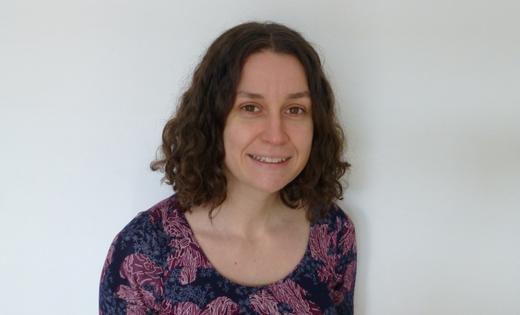
Dr Shona Smith, Research and Innovation Development Manager at the Priestley Centre
Dr Shona Smith has been awarded an honorary fellowship by the Alliance for Sustainability Leadership in Education (EAUC).
The fellowship recognises the exceptional contribution that Dr Smith has made to the sector and to the EAUC community over the past few years.
Dr Smith, Research and Innovation Development Manager at the Priestley Centre, has been working closely with the EAUC and its members since 2019.
She has played an important role in the COP26 Universities Network, bringing institutions together to ensure a stronger voice at COP26. Now named the UK Universities Network (UUCN), this growing group of more than 85 UK-based universities and research organisations is working together to deliver a low carbon, resilient world.
Dr Smith said: “It is a privilege to be recognised alongside so many excellent and impactful people working on environmental challenges within the further and higher education sector.
“My work with the UUCN has been a highlight of recent years. Networks and collaborations such as these can achieve so much, and support sector wide approaches to a resilient net zero transition.”
Catalyst Award for leading change in digital education
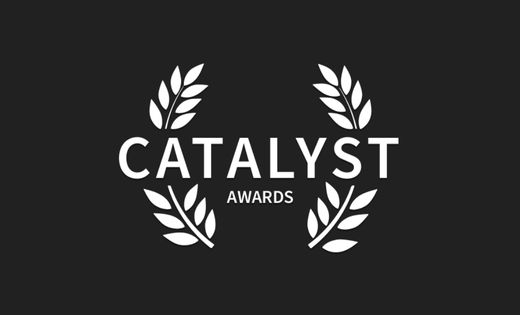
The Anthology Catalyst Awards recognise innovation and excellence in users of the Blackboard VLE platform across the world
A cross-University project team has won an Anthology Catalyst Award for ‘Leading Change’ in their work to upgrade the University’s virtual learning environment (VLE), Minerva.
The judges praised the team’s efforts to deliver the most significant change to online teaching at Leeds since the Blackboard VLE was adopted in 2008, “providing a powerful, community-first, truly engaging teaching and learning experience and delivering on Leeds' ambitious digital transformation strategy.”
Paul Cave, Programme Manager, said: “The Minerva Upgrade Project has been an immensely complex undertaking over several years, involving staff from throughout the institution.”
The first phase of the project moved Minerva to cloud hosting, with the second phase seeing the team move around 8,500 module teaching areas to Ultra Course View ahead of the 2022/23 academic year.
Paul said: “Last year's move to cloud hosting for Minerva provided numerous benefits, particularly in regard to accessibility and reliability, while the move to the more modern Ultra Course View for module teaching spaces this year has the potential to be truly transformative.
“The project has been a model demonstration of collegiate working, highlighting the positive relationship between Digital Education Services and IT, and I feel that the project team fully deserves the recognition this award provides.”
Look at the Minerva Ultra Staff Guides or sign up for training sessions to help you make the most of the new platform.
Higher and degree apprenticeship provision rated “Good” by Ofsted
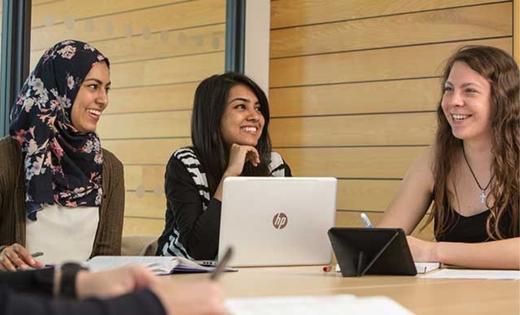
The education watchdog praised a “culture of care and respect” which makes apprentices feel “valued and safe”
Higher and degree apprenticeship provision at the University of Leeds has been awarded a rating of “Good” by Ofsted.
At the time of the inspection, in June this year, Leeds had 544 apprentices studying across disciplines including healthcare, nursing and leadership.
The Ofsted report, published in August 2022, said: “Apprentices acquire significant new knowledge, skills and behaviours throughout their apprenticeship and learn the specialist skills required for their roles.
“They are well prepared for higher-level careers in healthcare, nursing, clinical practice, leadership and digital technologies. The small number of apprentices who have completed their end-point assessments have achieved with high grades.
“Apprentices enjoy their programmes and are proud to be part of the university community. They appreciate the professional learning environment, including the library, which is well resourced to support research and further study.”
Ofsted also praised the variety of enrichment opportunities on offer, including the chance to attend guest lectures and seminars, and take part in sports such as kickboxing and football.
The report said apprentices who have specific learning needs are “well supported” including through additional academic support and assistive technologies.
Professor Jeff Grabill, Deputy Vice-Chancellor: Student Education, said: "Working with businesses and helping upskill their workforces is a key part of our work in the region and beyond.
“We have close relationships with many diverse employers, and work together to design workplace-based education and training that helps meet business priorities.
“This Ofsted report recognises the hard work that goes into preparing and running our apprenticeships programmes, which equip apprentices with the skills needed for high-level roles in their workplaces.”
Find out more about apprenticeships at the University.
Leverhulme Early Career Fellowship for typing research
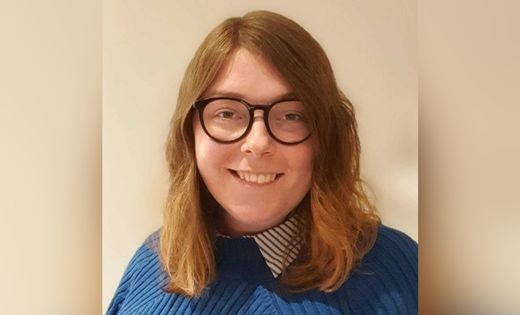
The award will fund Dr Williams’ research for three years
Dr Emily Williams has been awarded an Early Career Fellowship from the Leverhulme Trust, to investigate the building blocks required for children to learn to type.
Dr Williams, who is a Postdoctoral Research Fellow in the School of Psychology, said: “The idea of being able to carry out my proposal is only just sinking in. I’m so grateful to Leverhulme for the incredible opportunity to conduct this exciting work and establish myself as a research leader in motor skill learning.”
Dr Williams explained the research: “Children’s ability to learn new skills is linked to their educational attainment, socio-economic status, and physical and mental health.
“But we don’t yet understand the process of building a skill, the building blocks required, or the order in which they must be laid.”
First, Dr Williams will use a gamified typing task to measure the typing skills of more than 100,000 adult volunteers. This will give insight into the sub-skills involved in typing, and how they work together.
Next, Dr Williams will monitor the development of sub-skills in more than 1,000 Bradford school pupils learning to type using her purpose-built touch-typing course. Links with the Centre for Applied Education Research and the Born in Bradford birth cohort study have made this a possibility.
Dr Williams added: “I can then link this typing learning data with the pupils’ current and historic cognitive ability, mental and physical health and educational attainment to find out more about how skill acquisition relates to other developmental attributes that shape a person’s life.”
Senior Research Fellowship awarded by The Kennedy Trust
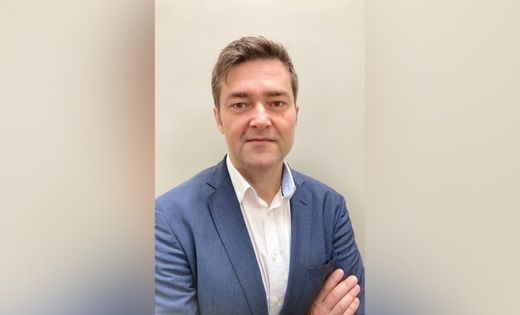
Dr Savic’s research aims to improve diagnosis, treatment and quality of life for people with inflammatory disorders
Dr Sinisa Savic has been awarded a prestigious £2.4m Senior Research Fellowship from The Kennedy Trust. The five-year fellowship is given to researchers with a proven track record of excellence in the field of rheumatology or related musculoskeletal medicine.
Dr Savic, Associate Clinical Professor at the Leeds Institute of Rheumatic and Musculoskeletal Medicine, said: “I’m absolutely thrilled to receive this generous support from the Trust.
“I would also like to thank my colleagues and students from Leeds, as well as my patients who have helped me to generate a valuable body of research to date.”
Dr Savic’s research focuses on immune-mediated inflammatory disorders (IMIDs), a range of conditions caused by an individual’s own immune system attacking various body parts, including joints and soft tissues.
He added: “The fellowship will allow me to consolidate my previous research and drive advances in this under-researched area of inflammatory biology.”
Ultimately, Dr Savic aims to improve the diagnosis, treatment and quality of life for patients currently left underserved by innovation in the field.
Professor Julia Brown, Deputy Dean of the Faculty of Medicine and Health, said: “This award underpins exciting research aligned with our faculty research and innovation strategy, and importantly aims to improve the lives of patients with immune-mediated inflammatory disorders.”
Professor Sir Stephen Holgate, Chairman of the Trust’s Board of Trustees, said: “Sinisa has demonstrated exceptional promise and we are delighted to support him at this exciting stage in his research career.”
Find out more about The Kennedy Trust’s Senior Research Fellowship Scheme
Leeds academics recognised for outstanding contribution to student experience

Professors Bee Bond and Karen Burland, and Dr Nick Cartwright (left to right)
Three academics at the University have been recognised for their outstanding contribution to higher education with National Teaching Fellowships.
Professor Bee Bond from the Language Centre and Professor Karen Burland from the School of Music have both been awarded National Teaching Fellowships (NTF) for their work at Leeds.
Dr Nick Cartwright, from the School of Law, has also been awarded a NTF through a nomination from his previous institution, the University of Northampton.
The National Teaching Fellowship Scheme (NTS) recognises individuals who have made an exceptional contribution to student outcomes and the teaching profession.
Professor Bond said: “The award has provided public recognition of an area of work that remains side-lined or hidden in many institutions. The possibility of new connections and collaborations available through the NTF networks will, I hope, help to make my discipline and the students we work with more visible and valued.”
Professor Burland said: “The process of reflection involved in the NTF process has been valuable for helping me to identify my values as an educator. It provided me with the opportunity to bring together the impact of my teaching and research throughout my career.”
Dr Cartwright said: “This Fellowship is important because it helps to amplify those voices and, I hope, will make those students feel that their contribution to improving higher education is valuable.”
Academic receives prestigious German fellowship
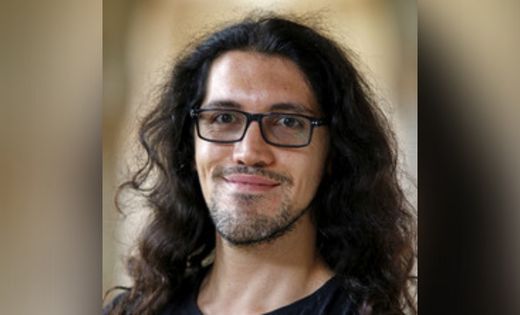
Dr Koutsourakis is the recipient of an esteemed Fellowship
Dr Angelos Koutsourakis (Languages, Cultures and Societies) has been awarded a prestigious Humboldt Research Fellowship for Experienced Researchers funded by the Alexander von Humboldt foundation.
The fellowship was established by the government of the Federal Republic of Germany and funded by the Federal Foreign Office, the Federal Ministry of Education and Research and the Federal Ministry for Economic Cooperation and Development.
In providing Humboldt Research Fellowships for experienced researchers, the Alexander von Humboldt Foundation enables highly-qualified scientists and scholars from abroad, who completed their doctorates less than twelve years ago, to spend extended periods of research in Germany.
The research outline is carried out in cooperation with academic hosts at research institutions in Germany and applicants choose their own topic of research and their host in Germany.
Dr Koutsourakis said; “I am really pleased to have received an Alexander von Humboldt Fellowship for experienced researchers. The Fellowship will enable me to work for nine months at Freie Universität Berlin so as to complete my third monograph - Kafkaesque Cinema - that arose from an AHRC Research Leadership Fellowship.
“It is a great relief to see that some funders still support traditional Humanistic research, and I am grateful to the people at Freie Universität Berlin for enthusiastically helping me with my application.
“I hope that the von Humboldt award will act as a stepping stone for a future EU grant application and further collaborations with European institutions."
Professor to lead international team for new book on Holocaust literature
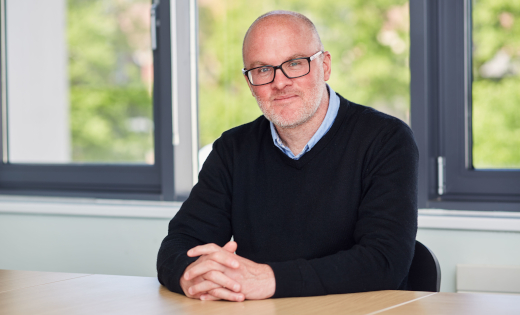
Professor Taberner will lead a team of international experts to create a new book exploring Holocaust literature
Professor Stuart Taberner (Languages, Cultures and Societies) has been awarded £1m from the Arts and Humanities Research Council to create the Cambridge History of Holocaust Literature, to be published by Cambridge University Press (CUP).
Works written in the camps and ghettos during the Holocaust will be reviewed, as well as literature produced in the almost eighty years since, around the world and in dozens of languages, by victims, survivors, their children and grandchildren and many others.
The project will undertake a “comprehensive rethinking” of what Holocaust literature is, how it functions, and what the Holocaust means today using a contemporary lens of power, inequality, human rights and social justice.
Professor Taberner said: “I’m delighted to be working with around 40 international scholars on this exciting project to investigate eighty years of Holocaust literature, written in the concentration camps and ghettos of wartime Europe.
“This project demonstrates the continuing relevance of the Holocaust for debates today on all topics ranging from refugees, abortion rights, and responses to the COVID-19 pandemic, to contemporary atrocities such as the war in Ukraine.”
Leeds Professor’s research featured in UKRI annual report

Professor Alex Frangi holds the Diamond Jubilee Chair in Computational Medicine in the School of Computing and is a Turing Fellow
Professor Alex Frangi’s research on transforming healthcare screening has been featured in the 2021-22 UK Research and Innovation (UKRI) Annual Report and Accounts.
The research has developed an artificial intelligence (AI) system that can identify patients at a high risk of a heart attack with 70-80% accuracy by analysing eye scans taken during a routine visit to an optician or eye clinic.
Changes to tiny blood vessels in the retina are indicators of broader vascular disease, including problems with the heart.
In the research, led by Professor Alex Frangi (School of Computing), deep learning techniques were used to train an AI system to automatically read retinal scans and identify those people who, over the following year, were likely to have a heart attack.
Research like this can transform healthcare by translating into new materials, sensors, imaging and analytical techniques needed to improve prediction, diagnosis and treatment of disease.
Professor Frangi said: “Cardiovascular diseases, including heart attacks, are the leading cause of early death worldwide and the second-largest killer in the UK. This causes chronic ill-health and misery worldwide.
“This technique opens up the possibility of revolutionising the screening of cardiac disease. Retinal scans are comparatively cheap and routinely used in many optician practices. As a result of automated screening, patients who are at high risk of becoming ill could be referred for specialist cardiac services.
“The system could also be used to track early signs of heart disease.”
Leeds mathematician elected to distinguished fellowship
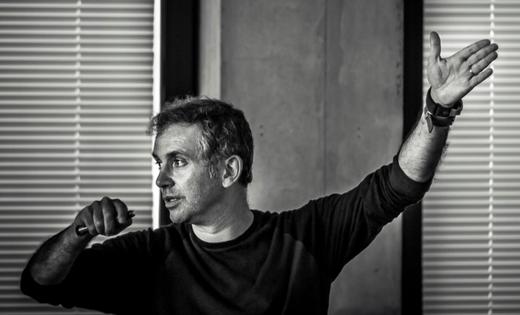
A Leeds professor has been awarded a prestigious fellowship to investigate one of the most complex areas of maths in astrophysics
Steven Tobias, Professor of Applied Mathematics, has been elected to undertake a Rothschild Distinguished Visiting Fellowship in a research programme titled “Frontiers in dynamo theory: from the Earth to the stars”. The fellowship is hosted at the Isaac Newton Institute for Mathematical Sciences, an international mathematics research centre based in Cambridge.
Professor Tobias, based at Leeds’ School of Mathematics, is researching how the magnetic field of the sun is generated and why it changes polarity every 11 years – while Earth’s magnetic field can stay with one polarity for hundreds of thousands of years before flipping the magnetic North and South poles.
Professor Tobias’ fellowship commences in the coming weeks. Each year, a small group of pre-eminent mathematicians from around the world are invited to take up the fellowships, to give keynote seminars at the Institute and lectures around the UK.
Past recipients of the award have included Fields medallists and Nobel Prize Winners.
Professor Tobias, who is the Director of the Leeds Institute for Fluid Dynamics, said: “I was obviously very pleased and honoured to be chosen as the Distinguished Visiting Fellow. The list of previous recipients includes some extremely eminent mathematicians, physicists and scientists and so it is a great honour.”
Although Professor Tobias’ research focuses on the physics of fluid flows on Earth and in astrophysics, it is likely to have an impact on other areas of science and engineering.
He said: “Fluid dynamics plays a crucial role in all our big societal challenges, be it attaining net zero, understanding climate or health. It also plays a key role in our economy. Developing our understanding of turbulent fluid flow will have significant spin offs in engineering, physics and the life sciences.”
Get in touch!
We know there are lots of great things happening to support the work of the University – and we want to hear about them!
Please follow the staff Twitter account to see the latest updates and copy in our @UniLeedsStaff handle when posting success stories, so we can share them with colleagues.
You can also contact Internal Communications directly if you or one of your colleagues would like to appear in this monthly feature. This is open to all staff – professional and academic.
Posted in: University news